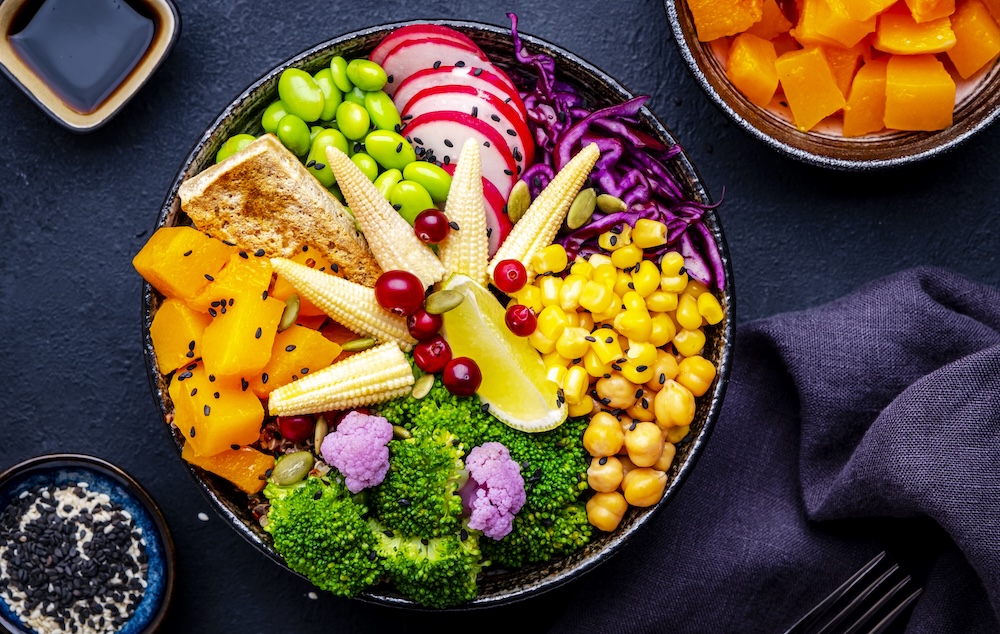Why Our Food System Matters More Than We Realize
Since 2020, the world has been forced to confront a hard truth: the way we produce and consume food isn’t just about personal health—it has global consequences. COVID-19 was a wake-up call, but it wasn’t the first pandemic tied to animals—and it won’t be the last if we don’t change course.
A growing body of scientific evidence connects animal agriculture, environmental destruction, and the rise of zoonotic diseases—those that jump from animals to humans. In this context, a vegan diet isn’t just an ethical or ecological choice. It may be one of the most powerful strategies we have to prevent the next global outbreak.
This article explores seven specific ways a plant-based lifestyle helps reduce pandemic risk and build a safer, healthier future for everyone.
1. Reduces the Risk of Zoonotic Disease Spillover
Most new infectious diseases in humans come from animals. These include:
- HIV (from chimpanzees)
- SARS (from civet cats)
- MERS (from camels)
- Bird flu and swine flu (from poultry and pigs)
- COVID-19 (likely from wildlife sold in markets)
Animal agriculture creates conditions where viruses can mutate, recombine, and leap across species barriers. Whether in factory farms or wet markets, close contact between stressed animals and humans increases the likelihood of disease transmission.
By removing animal products from our diets, we reduce the demand for environments that serve as incubators for emerging pathogens.
2. Ends the Need for High-Risk Factory Farming
Industrial animal farming confines thousands of genetically similar animals in close quarters. These facilities are perfect breeding grounds for viruses and bacteria. A single mutation can spread rapidly across herds or flocks—and into human populations.
Factory farms also:
- Suppress early disease detection to avoid profit losses
- Prioritize speed and scale over safety
- Have poor ventilation and sanitation that accelerate infection risk
A plant-based food system eliminates the need for these farms entirely.
3. Helps Curb Antibiotic Resistance
Nearly 70% of antibiotics sold globally are used in animal agriculture—not to treat illness, but to promote growth and prevent disease in overcrowded conditions.
This overuse leads to antibiotic-resistant bacteria (or “superbugs”) that can infect humans and no longer respond to standard treatments. The World Health Organization has declared antibiotic resistance a global health emergency.
Vegan diets support the shift away from this dangerous overreliance on antibiotics, lowering the risk of future bacterial pandemics.
4. Protects Wild Habitats and Biodiversity
As global meat demand rises, forests and wild lands are cleared for grazing or for growing feed crops like soy and corn. This destroys natural ecosystems and pushes wildlife into closer contact with human populations.
When wild species lose their habitat, they:
- Flee into human-dominated areas
- Compete for resources with domesticated animals
- Bring unfamiliar pathogens with them
Pandemics often begin at this human-wildlife interface. A vegan food system reduces pressure on land, allowing ecosystems to recover and buffering us from direct exposure to new viruses.
5. Lowers Risk from Wet Markets and Wildlife Trade
While not all wet markets are problematic, many in parts of the world sell live animals under crowded and unsanitary conditions. Wildlife markets are especially dangerous, mixing species that would never interact in nature, allowing viruses to leap across species lines.
COVID-19 is believed to have emerged from such a market.
Reducing or eliminating the demand for animal products—both farmed and wild—makes these markets economically unsustainable and reduces their spread.
6. Eliminates Slaughterhouse Worker Exposure
Pandemic risk doesn’t just come from animals—it also affects the people processing them.
Slaughterhouses and meatpacking plants have been epicenters for COVID-19 outbreaks due to:
- Cold, humid environments where viruses survive longer
- Poor ventilation
- Crowded working conditions
- Fast-paced, high-pressure labor
A vegan economy avoids placing humans in close, dangerous proximity to animals and each other in ways that accelerate the spread of respiratory viruses.
7. Creates a More Resilient, Localized Food System
Plant-based foods are easier to produce and distribute locally than meat, which requires more land, water, and processing infrastructure.
In times of crisis—whether health-related, economic, or climate-driven—plant-based systems:
- Scale faster
- Cause fewer supply chain breakdowns
- Require fewer high-risk labor environments
Vegan agriculture can be decentralized, sustainable, and community-based—qualities essential for pandemic resilience.
What the Research Says
Multiple studies and global health organizations have warned about the connection between pandemics and animal-based food systems:
- A 2020 United Nations report called for a shift to more plant-based diets to reduce zoonotic disease risk.
- The World Health Organization has highlighted animal farming and wildlife trade as major drivers of viral emergence.
- The CDC estimates that 3 out of 4 new infectious diseases in humans originate in animals.
Ignoring these warnings is no longer an option.
Common Questions About Diet and Pandemic Risk
Isn’t COVID-19 a one-time event?
No. SARS, MERS, bird flu, swine flu, and Ebola all originated in animals. Zoonotic outbreaks are increasing in frequency.
Wouldn’t better regulation of animal farms be enough?
Regulation helps, but it doesn’t address the root issue: the human-animal interface created by raising, slaughtering, and consuming animals. Even well-managed systems pose risk.
Can one person’s diet really make a difference?
Yes. Individual choices shape market demand. Reducing or eliminating animal products sends a powerful message—and protects ecosystems upstream.
Is a vegan diet the only solution?
It’s one of the most impactful personal actions available. Systemic policy changes matter too, but consumer behavior drives momentum.
Final Thoughts: Prevention Starts on Our Plates
The next pandemic may already be forming—hidden in the conditions we’ve normalized: factory farms, shrinking forests, and high-speed slaughter lines. But the solution is not locked in labs or emergency stockpiles.
It begins with prevention. And prevention begins with food.
Choosing a vegan lifestyle doesn’t just protect animals or reduce emissions. It protects people—locally and globally, now and for generations to come.
The future of public health may depend on what we decide to serve today.









Reader Interactions